HUNDREDS of elephants die in Zimbabwe's drought, with babies and elderly likely to succumb as conservationists sound the alarm on climate change
At least 100 elephants have died in Zimbabwe due to drought, most of them infants and the elderly, as conservationists warned of the impact of climate change.
The tragic deaths occurred in Zimbabwe's largest national park, Hwange National Park, due to a prolonged dry season.
Authorities warned that more people could die as forecasts point to scarcity of rain and increasing heat in the southern African country, including the national park hit by the El Nino weather phenomenon.
“El Nino is making an already dire situation worse,” said Tinashe Farawo, spokesperson for the Zimbabwe National Parks and Wildlife Management Authority.
El Nino is a natural and recurring weather phenomenon that warms parts of the Pacific Ocean and affects weather patterns around the world.
At least a hundred elephants have died in Zimbabwe due to drought, most of them infants and the elderly
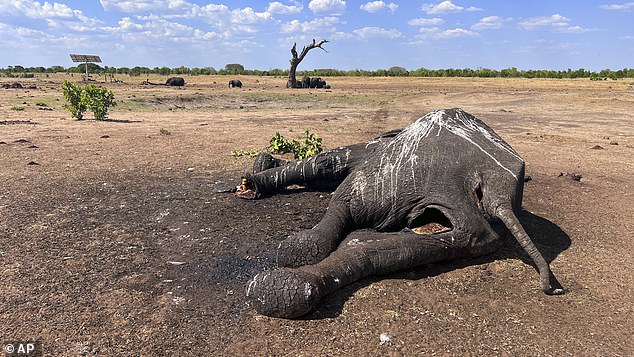
The tragic deaths occurred in Zimbabwe's largest national park, Hwange National Park, due to a prolonged dry season, which wildlife authorities blamed on climate change.
Although this year's El Nino recently caused deadly flooding in East Africa, rainfall is expected to be lower than average across southern Africa.
“Elephants and other species will face a crisis if the rains don't come soon,” said Phillip Kuvawoga, landscape program director at the International Fund for Animal Welfare.
This was already noticeable in Zimbabwe, where the rainy season started weeks later than normal. Although some rain has now fallen, forecasts generally predict a dry, hot summer.
Research shows that climate change may make El Ninos stronger, which could lead to more extreme consequences.
Authorities fear a repeat of 2019, when more than 200 elephants in Hwange died in a severe drought.
“This phenomenon is repeating itself,” said Kuvawoga, who raised the alarm for Hwange's elephants in a report this month.
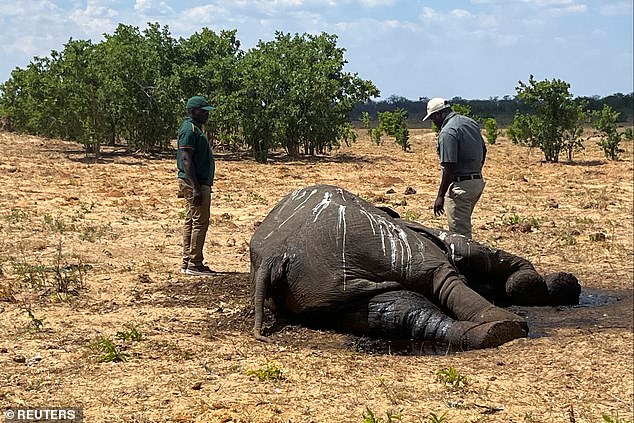
Authorities warned that more could die as forecasts point to scarcity of rain and increasing heat in parts of the southern African country, including the national park hit by the El Nino weather phenomenon.
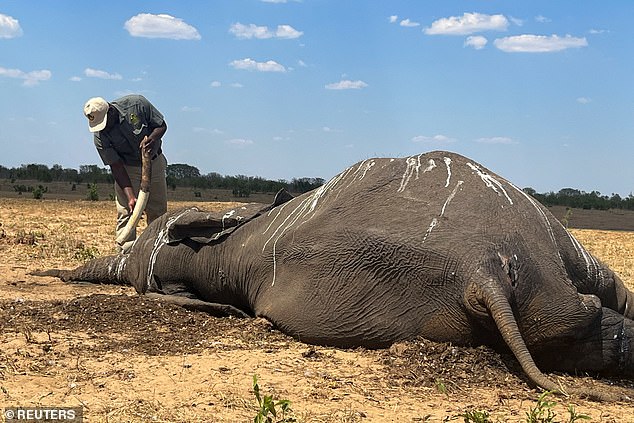
Hwange is home to approximately 45,000 elephants, along with more than 100 other mammal species and 400 bird species
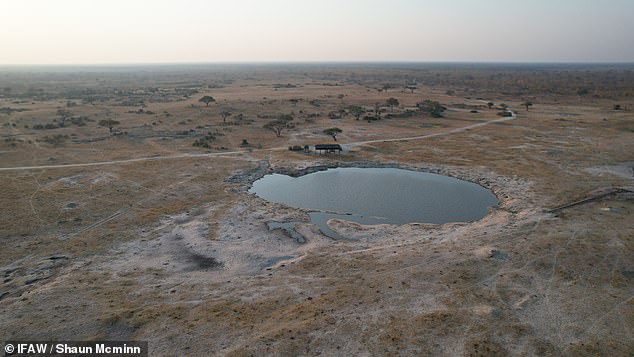
The rainy season in Zimbabwe once reliably started in October and continued until March. It has become erratic in recent years, and conservationists have noted longer, more severe dry spells
Parks Agency spokesperson Farawo posted a video on social media site X, formerly Twitter, showing a young elephant who is having a hard time for his life after getting stuck in mud in a waterhole that had partially dried up in Hwange.
“The elephants most affected are young, elderly and sick elephants who cannot travel long distances to find water,” Farawo said. He said an average-sized elephant needs about 200 liters of water per day.
Park rangers remove tusks from dead elephants wherever they can, keeping them safe so the carcasses don't attract poachers.
Hwange is home to approximately 45,000 elephants, along with more than 100 other mammal species and 400 bird species.
The rainy season in Zimbabwe once reliably started in October and continued until March. It has become erratic in recent years, and conservationists have noted longer, more severe dry spells.
“Our region will have significantly less rainfall, so the dry spell could return soon due to El Nino,” said Trevor Lane, director of The Bhejane Trust, a conservation group that supports Zimbabwe's parks organization.
He said his organization pumps 1.5 million liters of water into Hwange's waterholes every day from more than 50 wells it manages in partnership with the park agency.
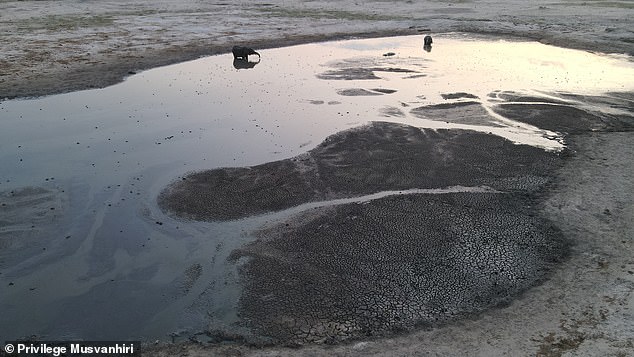
The 9,000-square-kilometer park, with no major river flowing through it, has just over 100 solar-powered boreholes that pump water for the animals.
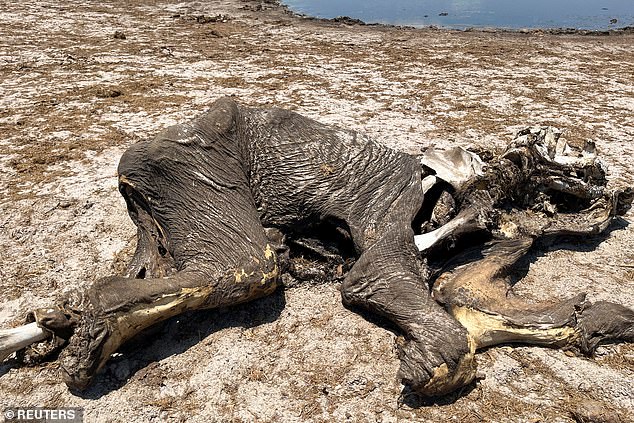
Authorities fear a repeat of 2019, when more than 200 elephants in Hwange died due to severe drought
The 9,000-square-kilometer park, with no major river flowing through it, has just over 100 solar-powered boreholes that pump water for the animals.
Elephants are an important ally in the fight against climate change through the ecosystem, spreading vegetation over long distances through dung containing plant seeds, conservationists said.
The animals ensure that forests can spread, regenerate and flourish. Trees suck planet-warming carbon dioxide from the atmosphere.
“They play a much bigger role than humans in reforestation,” Lane said. “That's one of the reasons we're fighting to keep elephants alive.”
